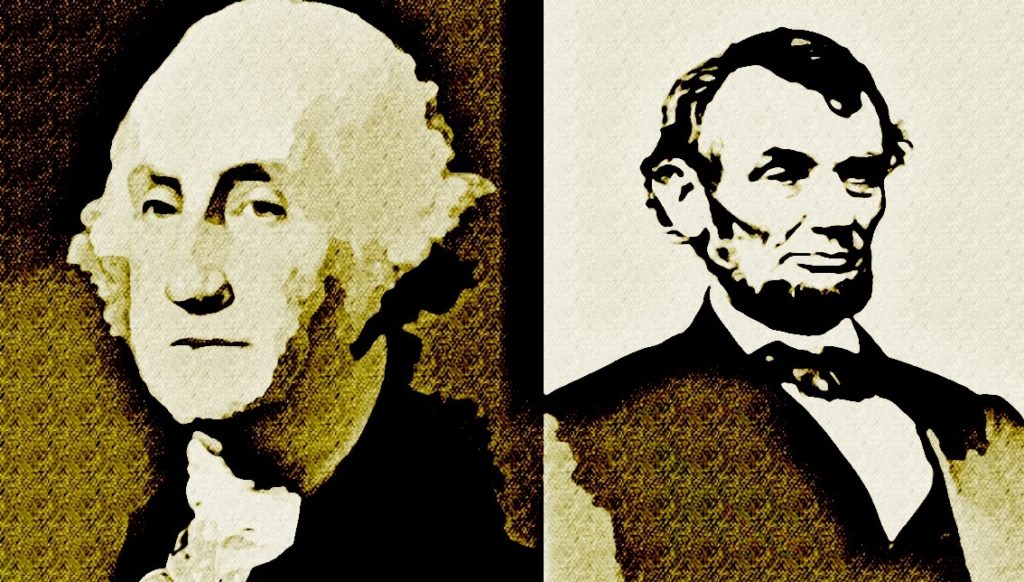When your wife was a long-time Civics teacher, Presidents’ Day takes on special meaning in your home. Though the day broadly acknowledges everyone who has sat in the Oval Office, in the Coughlin household we focus on two presidents: George Washington and Abraham Lincoln. This got me thinking: which one would make the better startup CEO?
To begin that question needs to be broken down one step further. We need to clarify which stage in the startup lifecycle the company is at. Is it genesis stage or is it further along, perhaps just before IPO? I mention this because there is an incredibly different skill set needed in the early days of a company than in the later.
An early startup CEO must truly be a builder. Qualities of a builder include:
- Building everything from scratch
- Number one salesperson
- Rallying people behind a vision
- Number one recruiter
- Good at running a business
The leader of a later stage company needs to be more of a manager. Those qualities include:
- Unifying different groups within the org
- Streamlining efficiencies
- Making sure the trains continue to run on time
- Finding the one or two most impactful things
There are no more obvious examples of two people faced with the extremes of those scenarios than Washington and Lincoln. But before we talk about their experience, let’s look at their pasts.
When investing in companies, we are always interested in the founding team and their story. Origin stories aren’t just reserved for comic books. People love a good startup origin story.
Is there a greater origin story in American political history than Abraham Lincoln?
The man was born in a one-room log cabin. His mother died when he was nine. He was self-educated. He gave all the money he earned until he was 21 to his father to help support the family. His first business (owning a general store) struggled and failed. He became a Prairie lawyer where he dealt with every type of case possible. Finally, after years of struggle, hard work, failure and more hard work he bootstrapped his way to the highest office in the land. He is the epitome of the self-made person.
Let’s contrast that to Washington.
The Washington family was wealthy. They owned 5,000 acres of land on the Potomac. Though Washington’s education wasn’t overly formal, he did learn mathematics and land surveying among other skills. The Governor of Virginia commissioned him in the military. He had early career success and married rich.
Armed with the above information, I could presume that Lincoln was a scrappy startup founder, while Washington moved in the elite circles of the executive boardrooms of established companies.
Yet, we all know, this is not how their lives would play out.
Washington would go on to be the first CEO of the greatest startup in history: the United States of America. His toughness, quick decision making, passion and humility rallied people to his cause and made them, literally, willing to die for him. In the face of despair, when all looked lost, Washington persevered and has become a case study for effective early stage leadership.
If America was an early-stage startup when Washington was CEO, then by the time Lincoln came around he inherited a large and complicated organization. The country was literally bursting at the seams. It looked destined for failure. Lincoln didn’t have the luxury of blowing it up and starting over. He needed to fix the wings of a plane while it was in mid-flight. No leader could bring such opposing sides together, heal those wounds, turn the page, and write a new chapter. No one, except Lincoln. In the end, that leadership cost him his life but it created a heck of a legacy.
I started writing this article thinking I could decide that one of these success stories was better than the other. But now I am simply going to appreciate what both accomplished. In my career I have worked both in genesis-stage startups and larger, corporate machines. I know how hard success in either can be.
There is no doubt it is more fun in a startup but the odds are very much against you. Eighty-percent of startups fail. It is truly amazing that Washington succeeded! Yet do you know how difficult it is to move the needle even a little bit within a big organization? In some ways, I am shocked that I am still writing this article as a member of the United States of America. Most companies don’t last this long, especially when dealing with the types of problems America has faced.
But it is a good reminder of the importance of a strong mission statement. There is no better startup mission than America:
We hold these truths to be self-evident, that all men are created equal, that they are endowed by their Creator with certain unalienable Rights, that among these are Life, Liberty and the pursuit of Happiness.
A strong vision enforced by great leadership means the impossible can happen. Of course, it is never perfect. Company building rarely is. But true, history-making change is difficult. It takes legendary leaders to accomplish it. On this Presidents’ Day we should simply sit back and appreciate that America had not one legendary leader at its helm but two.
Now if only I had been around to invest in both Washington and Lincoln!








